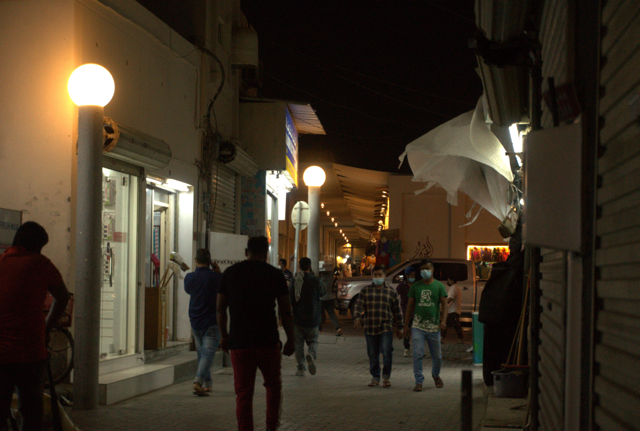Unpaid wages spark strikes and sit-ins month after month in Kuwait; as the Kuwaiti government continues to favor corporations over workers’ rights, migrants are forced to carry the burden of the country's transformation.
Workers are occasionally able to push employers to pay them, but more often are unable to secure better wages and working conditions. Strikes and any kind of collective action remain illegal for migrant workers, and participants are subject to dispersal and intimidation.
Earlier in 2015, migrant construction workers striked for a week to demand 3 months of unpaid salaries from a state-contracted company. The workers are building an 1168-bed hospital in South Surra area, a project that is part of state plans to segregate citizen and expatriate health facilities.
In March 2015, unpaid workers staged a one-night sit-in at another state-contracted project in the Farwaniya area. It remains unknown if workers have since been paid their wages.
In May 2015, 400 cleaning workers at the Public Authority for Applied Education and Training (PAAET) organized a strike to protest 8 months of unpaid wages. The workers are employees of four different companies contracted by PAAET. Official contracts stipulate workers are to be paid 60 K.D (approximately $200 USD) - but the workers told journalists they have been surviving on food and money donated to them by students they encounter on campus.
400 workers attended a May 12th sit-in in front of PAAET headquarters in Idailiya but over 1100 are awaiting their wages. The workers attempted to approach several different officials at PAAET but none cared to hear their demands, and some even threatened to fire and deport them. This is when they decided to strike, according to the workers in this video.
These institutions and corporations drag vulnerable workers into a cycle of corruption and bureaucracy; after the sit-in, one ministry official asked the workers to end their strike and promised to resolve their issues. But instead, the workers’ companies withheld their salaries to pressure PAEET into paying their own overdue sums.
In late May, a group of maintenance workers at Kuwait University held a sit-in at the university’s campus in the Shuwaikh area. The company contracted by the university has withheld their wages for two months. At the time of publishing, it is not known whether their salaries have been paid.
Earlier this June, it was rumored that press workers at the Ministry of Communication would strike to demand withheld benefits. The ministry published a statement denying the planned strike, stating that the issue is being resolved.
Similarly, office workers at the Ministry of Justice striked on June 10th after four months of unpaid work. Workers at the Ministry of Justice strike almost every year to demand payment of wages - since companies are never held accountable for delayed wages, exploitation has become endemic.
Kuwait also sees see major strikes organized by citizens demanding better benefits. This year, Social Security Authority employees organized the longest strike in the state’s history. State forces rarely subject these employees to the kind of harassment and penalties low-income migrants endure for demanding the rights contractually guaranteed to them.
Last year, Migrant-Rights.org reported on strikes organized across the GCC in 2014; across the region, striking workers were arrested, beaten, and even deported as punishment and to silence future protest.




